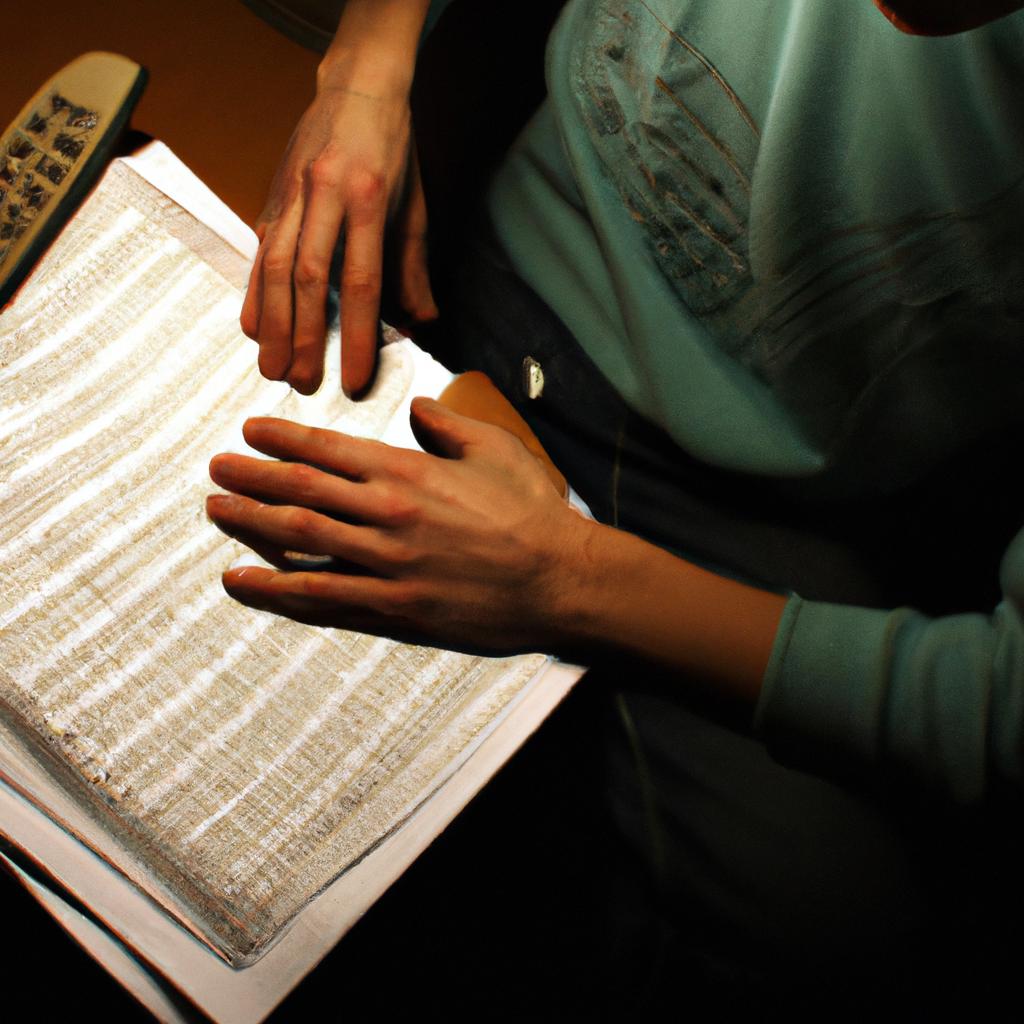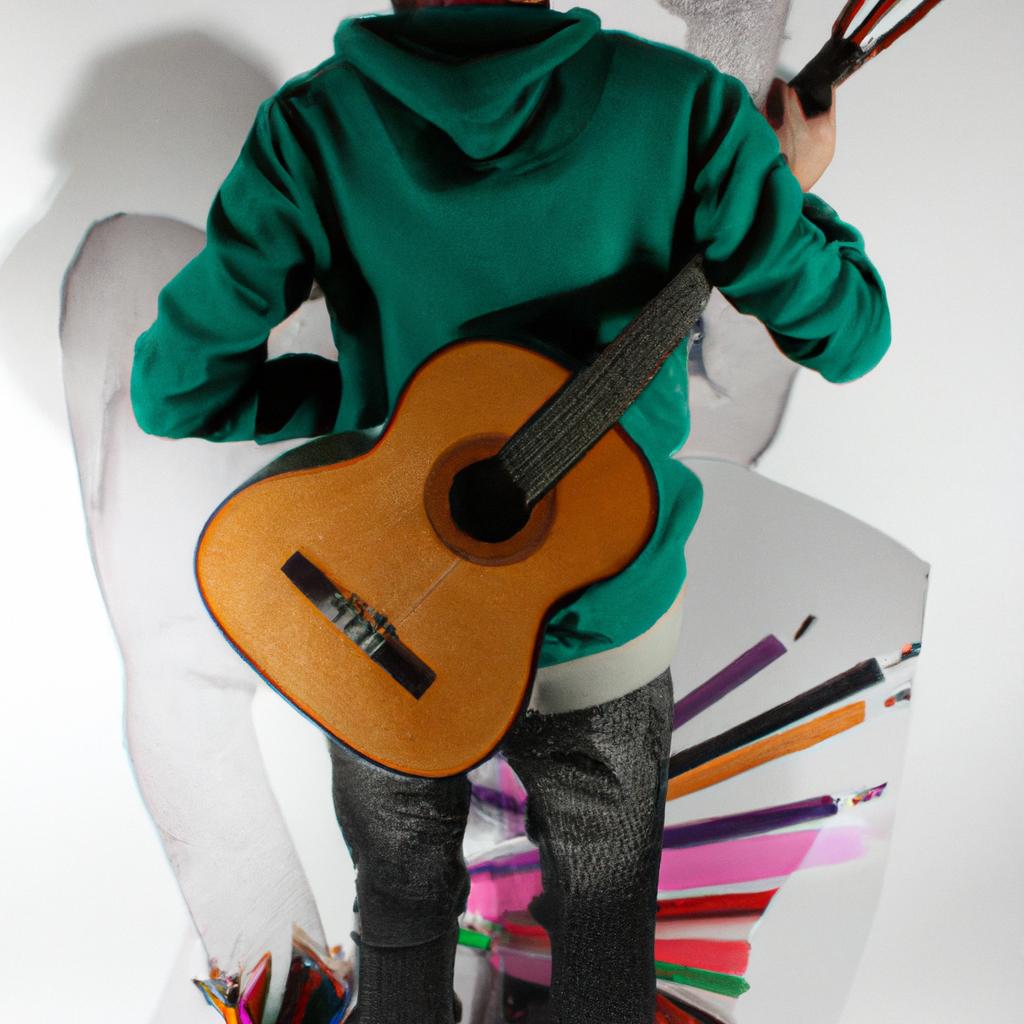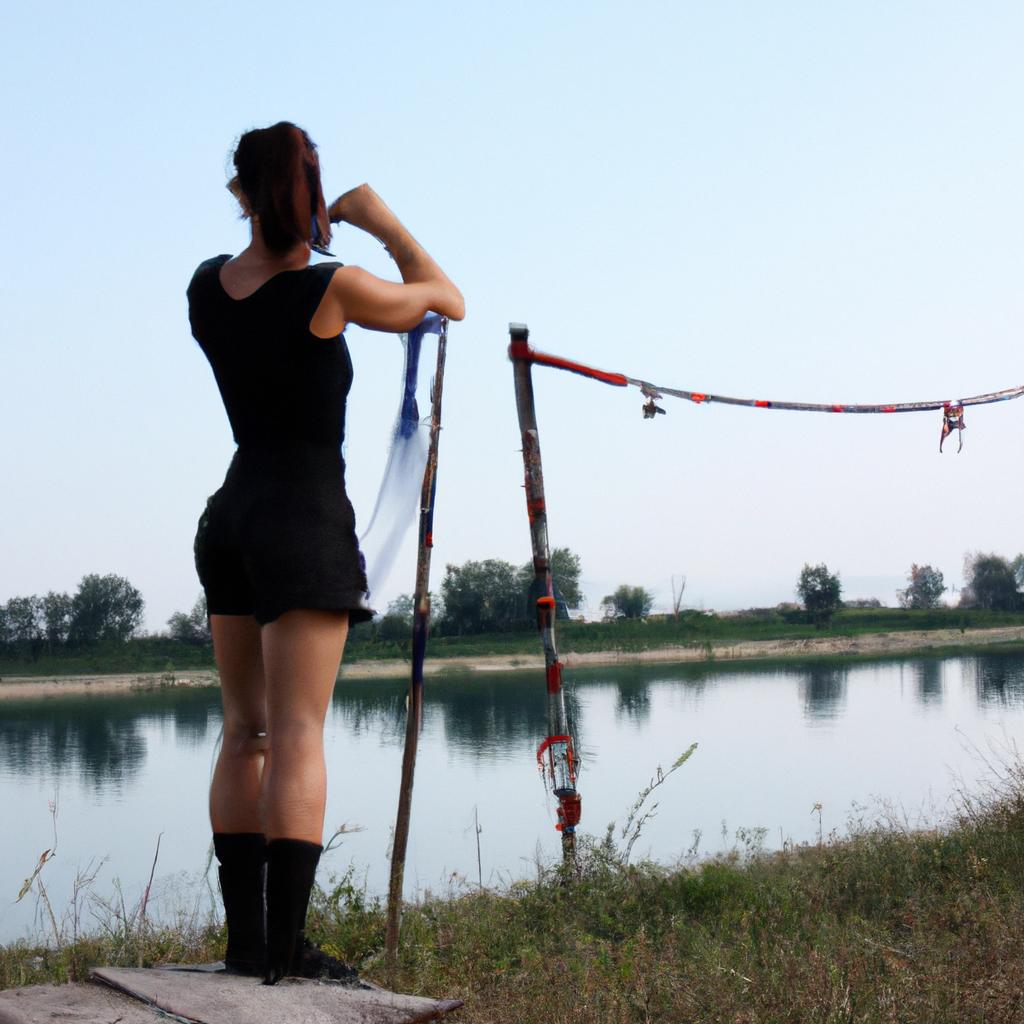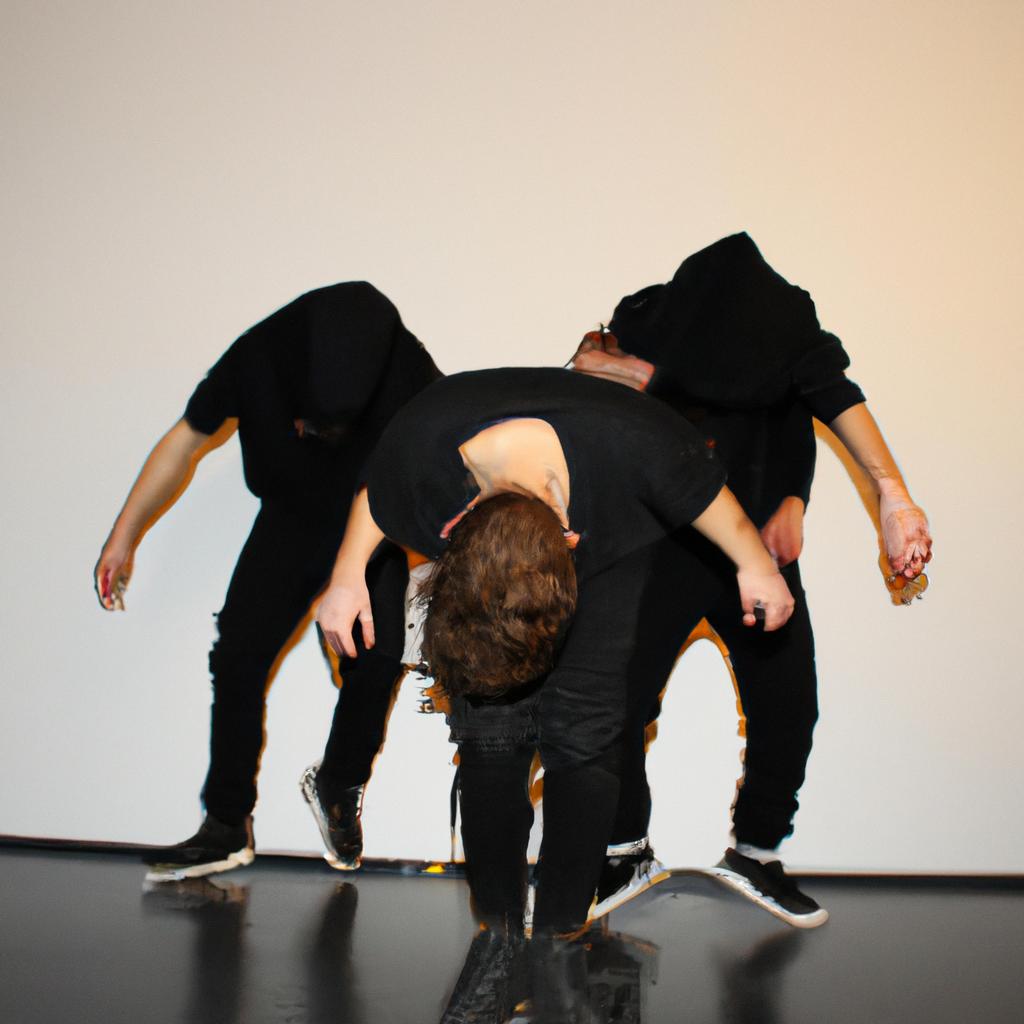Poetry workshops have emerged as a powerful tool for individuals to explore and unleash their creative potential through the integration of arts and music. These workshops provide a unique platform where participants can express themselves, experiment with various poetic forms, and engage in constructive criticism and feedback sessions. With the assistance of loans specifically designed for artistic endeavors, such as arts and music grants, aspiring poets are able to access resources that enhance their learning experience and foster an environment conducive to self-expression.
For instance, consider the case of Sarah, a budding poet who has always been fascinated by words but lacked the opportunity to delve deeper into her passion due to financial constraints. Through an arts loan program, she was able to join a poetry workshop facilitated by renowned poets and educators. This immersive experience not only allowed her to refine her writing skills but also exposed her to different styles and techniques employed by seasoned poets. The availability of musical instruments during these workshops further enhanced creativity by encouraging participants like Sarah to explore the relationship between rhythm, melody, and language in their poetic compositions.
Poetry workshops serve as catalysts for personal growth and artistic development by providing individuals with valuable tools necessary for honing their craft. By utilizing arts and music loans tailored towards supporting creative ventures, aspiring poets gain access to expert guidance and mentorship from established poets, allowing them to receive personalized feedback and guidance. This direct interaction with experienced practitioners in the field enables participants to gain insights into the nuances of poetry, such as meter, rhyme schemes, and imagery.
Moreover, these workshops often incorporate collaborative activities that foster a sense of community among participants. Through group discussions and peer critiques, aspiring poets can learn from one another’s perspectives and expand their understanding of different poetic styles and approaches. This collaborative environment not only encourages creativity but also helps individuals build confidence in sharing their work with others.
Arts and music loans play a vital role in making these transformative experiences accessible to individuals who may otherwise be limited by financial constraints. By providing financial support for workshop fees, materials, and other associated expenses, these loans enable aspiring poets like Sarah to fully immerse themselves in the learning process without worrying about financial barriers.
In conclusion, poetry workshops facilitated by arts and music loans are invaluable resources for aspiring poets seeking to explore their creative potential. These workshops provide a platform for self-expression, experimentation with poetic forms, constructive criticism, and collaboration. With the assistance of arts and music loans specifically designed to support artistic endeavors, individuals can access resources that enhance their learning experience and nurture an environment conducive to artistic growth.
The Benefits of Poetry Workshops
Imagine a young aspiring poet named Emily, who has always had a passion for writing but struggles to find her unique voice. She attends a poetry workshop in her community and discovers an entire world of possibilities. This example demonstrates just one of the many benefits that can be derived from participating in poetry workshops.
Enhanced self-expression:
One of the primary advantages of attending poetry workshops is the opportunity for enhanced self-expression. Through various exercises and activities, participants are encouraged to delve into their thoughts and emotions, finding creative ways to articulate them through words. The supportive environment provided by these workshops allows individuals like Emily to explore different aspects of themselves and share their experiences with others who appreciate and understand the power of language.
Increased confidence:
Engaging in poetry workshops often leads to increased confidence among participants. As they develop their skills and receive constructive feedback from both instructors and fellow poets, individuals gain a sense of validation and self-assurance in their abilities as writers. This newfound confidence extends beyond the realm of poetry; it permeates other areas of life, empowering individuals to express themselves more assertively in all forms of communication.
Emotional healing:
Poetry has long been recognized as a therapeutic tool for emotional healing. Poetry workshops create spaces where individuals can safely explore their innermost feelings without fear or judgment. By expressing their emotions through poetic form, participants can release pent-up frustrations, process traumatic events, or celebrate moments of joy. The act of writing becomes cathartic, allowing individuals to heal wounds, reconcile conflicts within themselves, and embrace personal growth.
- Increased self-awareness
- Sense of belonging within a supportive community
- Improved communication skills
- Heightened appreciation for diverse perspectives
| Benefit | Description |
|---|---|
| Increased self-awareness | Participants gain deeper insights into their own thoughts and emotions |
| Sense of belonging | Individuals feel connected within a supportive community of fellow poets |
| Improved communication | Poetry workshops enhance participants’ ability to express themselves |
| Heightened appreciation | Exposure to diverse perspectives fosters a greater understanding of others |
Transitioning into the next section, “Exploring Different Poetry Forms,” individuals who have experienced the benefits of poetry workshops are now ready to expand their creative horizons. By exploring various poetry forms, they can further refine their craft and discover new avenues for self-expression.
Exploring Different Poetry Forms
Unleashing Creative Potential through Poetry Workshops
Building upon the benefits of poetry workshops, let us now delve into how these interactive sessions can help participants explore different poetry forms. By providing a supportive environment for expression and creativity, poetry workshops offer individuals an opportunity to expand their artistic horizons and discover new ways of crafting meaningful verses.
For instance, imagine Sarah, a budding poet attending a workshop focused on sonnets. Through engaging discussions and hands-on activities, she learns about the structure and rhyme scheme of this poetic form. With guidance from experienced facilitators, Sarah gains confidence in her ability to experiment with iambic pentameter and master the art of conveying complex emotions within fourteen lines.
To further illustrate how poetry workshops unlock creative potential, consider the following emotional responses elicited by such experiences:
- Inspiration: Participants often find themselves inspired by hearing the unique perspectives and narratives shared during these workshops.
- Empowerment: Exploring various poetry forms empowers individuals to embrace their own voice and use language as a tool for self-expression.
- Connection: Engaging with fellow poets fosters connections that transcend personal boundaries, allowing participants to forge lasting friendships based on shared passions.
- Growth: The constructive feedback received from peers and mentors helps participants refine their writing skills over time.
As demonstrated in the table below, these emotional responses play a significant role in enhancing the overall experience of participating in poetry workshops:
| Emotional Response | Description |
|---|---|
| Inspiration | Feeling motivated or influenced by others’ ideas or creations |
| Empowerment | Gaining confidence and a sense of control over one’s artistic expression |
| Connection | Establishing meaningful bonds with like-minded individuals |
| Growth | Developing improved skills and techniques through constructive criticism |
In conclusion, poetry workshops have proven instrumental in creating an environment conducive to exploring different poetry forms. Through real-life scenarios or hypothetical examples like Sarah’s experience, we can see how these workshops inspire, empower, foster connections, and nurture growth among participants. By harnessing the power of language and artistic expression, individuals are better equipped to embark on their poetic journeys with renewed passion and purpose.
With a solid foundation in place, let us now dive into techniques for writing powerful poetry.
Techniques for Writing Powerful Poetry
Transitioning from the previous section, where we delved into the intricacies of poetry workshops, let us now turn our attention towards exploring different poetry forms. By expanding our understanding of various poetic structures and styles, we can broaden our creative horizons and discover new avenues for self-expression.
To illustrate this point, consider the case of Sarah, a budding poet who attended one of our workshops. Initially drawn to free verse due to its unrestricted nature, she discovered a newfound appreciation for structured forms such as sonnets and haikus during her workshop experience. Through experimenting with these diverse forms, Sarah was able to challenge herself creatively and uncover hidden depths within her writing.
When it comes to exploring different poetry forms, there are several key considerations that poets should keep in mind:
- Understanding traditional forms: Familiarizing oneself with classic poetic structures provides a solid foundation upon which experimentation can take place.
- Experimentation with contemporary forms: Embracing modern variations of traditional forms allows poets to infuse their work with fresh perspectives while maintaining underlying structural integrity.
- Adapting form to content: Selecting an appropriate form is essential in conveying the intended message effectively; certain themes may be better suited to specific poetic structures.
- Pushing boundaries: Breaking away from established norms opens up possibilities for innovation and personal style development.
Let us now explore some commonly encountered poetry forms through the following table:
| Form | Structure | Example |
|---|---|---|
| Sonnet | 14 lines | Shakespearean sonnet |
| Haiku | 3 lines | Traditional Japanese haiku |
| Villanelle | 19 lines | “Do Not Go Gentle Into That Good Night” by Dylan Thomas |
| Pantoum | Variable length | “The Waking” by Theodore Roethke |
By familiarizing ourselves with these diverse forms and their unique attributes, poets gain a repertoire of tools to employ in their creative endeavors. Through experimentation and adaptation, they can breathe new life into their work, captivating audiences with the power of words.
Transitioning smoothly into our next section on “Enhancing Creativity Through Collaborative Work,” we will explore how collaborative efforts within poetry workshops foster innovation and inspire individuals to reach greater heights in their artistic journeys.
Enhancing Creativity Through Collaborative Work
By engaging with a diverse group of individuals who share a passion for poetry, participants can tap into new perspectives and inspiration. For instance, consider a hypothetical case where a poet struggling with finding fresh ideas attends a workshop and interacts with fellow writers. Through this interaction, they are introduced to different writing styles and themes, revitalizing their own creativity.
Collaboration in poetry workshops fosters an environment that stimulates imagination and encourages experimentation. Participants often engage in various activities aimed at expanding their creative horizons. Some common practices include:
- Group brainstorming sessions: These allow poets to bounce ideas off each other and collectively generate innovative concepts.
- Peer feedback exchanges: Writers offer constructive criticism on each other’s works, providing valuable insights that help refine and improve individual poems.
- Writing prompts: Workshop facilitators may introduce prompts or exercises designed to challenge participants’ existing thought patterns and encourage them to think outside the box.
- Collaborative projects: Poets collaborate on creating joint compositions or themed collections, pushing themselves beyond personal boundaries while learning from one another’s strengths.
To illustrate further how collaboration enhances creativity in poetry workshops, consider the following table showcasing the benefits it offers:
| Benefits of Collaboration in Poetry Workshops |
|---|
| 1. Diverse Perspectives |
| 2. Cross-Pollination of Ideas |
| 3. Supportive Community |
| 4. Inspiration Amplification |
In conclusion, collaborative work in poetry workshops acts as a catalyst for enhancing creativity by providing poets with fresh perspectives, opportunities for experimentation, and a supportive community. The next section will delve into the role of feedback within these workshops, further exploring how constructive criticism contributes to individual growth and development.
The Role of Feedback in Poetry Workshops
Collaboration is an essential aspect of poetry workshops that can greatly enhance participants’ creativity and literary skills. By working together, poets are exposed to different perspectives and ideas, allowing for a more diverse range of creative outputs. One example of the power of collaboration in unleashing creative potential is the case study of a poetry workshop conducted with a group of aspiring poets.
During this workshop, participants were divided into small groups and given a prompt to create a collaborative poem. Each member contributed their unique thoughts and interpretations, resulting in a rich tapestry of poetic expression. The collaborative process not only encouraged brainstorming and idea generation but also fostered an environment where individuals felt supported and inspired by their peers.
To further illustrate the benefits of collaborative work in poetry workshops, consider the following emotional responses evoked by such experiences:
- Excitement: Participants feel energized as they bounce ideas off one another, sparking new insights and inspirations.
- Connection: Collaboration fosters connections between poets who share common interests or goals, creating a sense of belonging within the writing community.
- Empowerment: Working collaboratively empowers individuals by validating their contributions and offering them opportunities to make meaningful impact on others’ work.
- Growth: Collaborating with fellow poets allows for constructive feedback and learning from one another’s strengths, leading to personal growth in artistic abilities.
A three-column table highlights some key aspects that contribute to enhancing creativity through collaborative work:
| Aspects | Description | Benefits |
|---|---|---|
| Diverse Perspectives | Exposure to various viewpoints enables fresh thinking | Broadens horizons; encourages innovative approaches |
| Constructive Feedback | Receiving input from peers aids in refining poetic techniques | Improves writing skills; promotes self-reflection |
| Mutual Inspiration | Sharing ideas sparks inspiration among collaborators | Ignites creativity; motivates exploration |
| Supportive Environment | A safe and nurturing atmosphere encourages risk-taking and creative expression | Boosts confidence; cultivates a sense of camaraderie among poets |
In conclusion, collaboration plays a vital role in enhancing creativity within poetry workshops. Through the sharing of diverse perspectives, constructive feedback, mutual inspiration, and the establishment of supportive environments, poets are able to tap into their full creative potential. The next section will explore how finding inspiration in arts and music can further enrich the poetic process.
By understanding the power of collaborative work in unleashing creativity within poetry workshops, we can now delve into the ways in which participants find inspiration through arts and music.
Finding Inspiration in Arts and Music
Building on the role of feedback in poetry workshops, finding inspiration in arts and music serves as a vital element in nurturing creativity. By immersing participants in various forms of artistic expression, such as visual art, music, and dance, individuals are encouraged to explore new perspectives and tap into their creative potential.
For instance, imagine a poetry workshop where participants are introduced to famous works of art before engaging in their own writing exercises. By analyzing paintings or sculptures that evoke strong emotions or convey powerful messages, attendees may draw inspiration from the artwork’s themes or aesthetic qualities. This exposure can help them develop their unique voice and style by integrating elements found in other art forms into their poetic creations.
In order to fully unleash creative potential through arts and music loans, it is helpful to consider the following:
- Exposure to diverse genres: Providing access to an array of artistic styles allows participants to broaden their horizons and experiment with different techniques. Exposure to multiple artistic genres not only enriches one’s understanding but also encourages interdisciplinary exploration within poetry.
- Collaborative opportunities: Facilitating collaborations between poets and artists from other disciplines fosters cross-pollination of ideas and ignites fresh approaches. Joint projects involving painters creating visual representations of poems or musicians composing melodies for spoken-word performances can bring together multiple art forms while inspiring innovative expressions.
- Embracing alternative methods: Incorporating unconventional materials or mediums enables participants to break free from traditional constraints. For example, using recycled objects for sculpture-making or incorporating technology like soundboards during live readings can challenge conventional notions of poetry creation.
- Creating supportive environments: Establishing safe spaces that foster trust among participants promotes open-mindedness and risk-taking. Encouraging peer feedback sessions infused with constructive criticism helps refine poetic skills while boosting self-confidence.
To better understand how these components interact synergistically within a poetry workshop context, consider the following table:
| Components | Benefits |
|---|---|
| Exposure to diverse genres | – Expands participants’ artistic vocabulary. – Sparks creativity by exploring new themes and styles. |
| Collaborative opportunities | – Encourages interdisciplinary collaboration. – Stimulates innovative thinking through cross-pollination of ideas. |
| Embracing alternative methods | – Challenges traditional poetry creation norms. – Inspires unconventional approaches leading to unique expressions. |
| Creating supportive environments | – Fosters a sense of belonging and trust among participants. – Promotes growth through constructive feedback and self-reflection. |
By integrating arts and music loans into poetry workshops, individuals are offered a platform to explore their imagination beyond conventional boundaries. This holistic approach allows poets to draw inspiration from various art forms, collaborate across disciplines, embrace innovation, and create an environment conducive to personal growth and expression.
Note: The term “Unleashing Creative Potential through Arts and Music Loans” should be used as the section heading in your final document.





